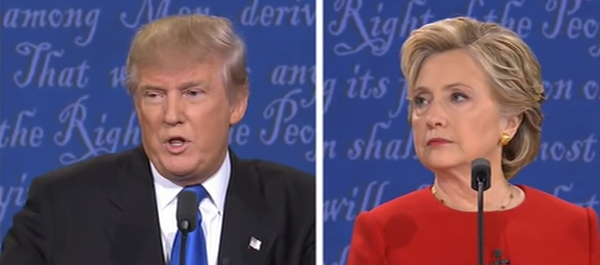Last month, I had the pleasure of attending Joseph E. Lowery’s 95th birthday celebration. Of course, the highlight was hearing him speak to his attendees. He was as humorous and as spirited as ever, cracking jokes, recounting tales of his younger years and even exchanging a playful banter with President Barack Obama, who phoned into the ceremony to wish Lowery a happy birthday.

I was honored to be in the room with the pioneer and legendary activist and his guests. It was a feel-good moment, but if I’m honest, I also felt a sense of foreboding. Though the event was meant to be a joyous occasion, it was also a stark reminder of the ominous times that lie ahead for African Americans.
While you’d expect it to be all about cake and laughter, Lowery used his party as a platform to talk about the issues facing our community. Instead of a sweet and simple birthday speech, he chose to use the occasion to talk about gun violence, disparities and encourage others to continue to make strides for the human rights.
Here he was, at 95 years of age, still out actively spearheading change—on his birthday of all days. But that got me thinking, who will be the Lowery of this generation?
The event took place in the National Center for Civil and Human Rights in Atlanta, which outlined the quest for civil rights in our country and around the world. Displays demonstrated how each achievement in the fight for equality was helmed by many of our great black leaders—from Martin Luther King to Lowery himself.
Seeing these exhibits, I tried to imagine who might be the next face(s) to display in the museum. Who among us will help to usher in the next achievements in human rights?
With the election just a day away, the spotlight is naturally on our presidential candidates. Each have campaigned on the promises to improve our communities. Trump, particularly, has boldly claimed he could “do more for African Americans” than Secretary Clinton or President Obama. While I’ll resist the urge to go in on that comment, I do have another quote I’d like to parapharse.
I recently watched the movie 13th by Ava DuVernay. CNN political commentator Van Jones appeared in the documentary, in which he posed an interesting argument. He said when you strip away black leadership (as had happened through the murders, exile and criminalization of many black activists of the civil rights era) the community will be “vulnerable” to anything or anyone, including our elected politicians.
So, yes, it’s important to elect the candidate who is most likely to address the concerns of our communities, serve the needs of our communities and build a bridge of understanding to all of our communities (not more hateful divisiveness). But vocal black leadership should be an essential player to keep those politicians accountable, to make sure our voices are heard and to push for change and progress.
Though there are big shoes to fill in this role, there is hope.
Just before the band struck up the music and before the cake was divvied out to all the birthday guests, a group of young black college students took the stage. These students were introduced to us as members of the Joseph and Evelyn Lowery Institute for Justice & Human Rights. The institute’s mission is to “provide future leaders and change agents with opportunities to explore the moral, ethical and theological imperatives for justice and human rights for all people.”

To hear all the work those students have done to date and all the work that they still plan to do was a powerful and beautiful sight. Lowery was passing the baton to the next generation of “difference makers.” And I for one, felt comforted knowing there is a hope for future for black leadership. And I hope to see much more from these young leaders—whether that means one day seeing their names on the ballot for public office or as a part of the museum’s next installment in the achievements for human rights.
BMWK, who do you think is currently shaping up to be our next leading activist for our community? What role will this coming election play in our communities?


Leave a Reply